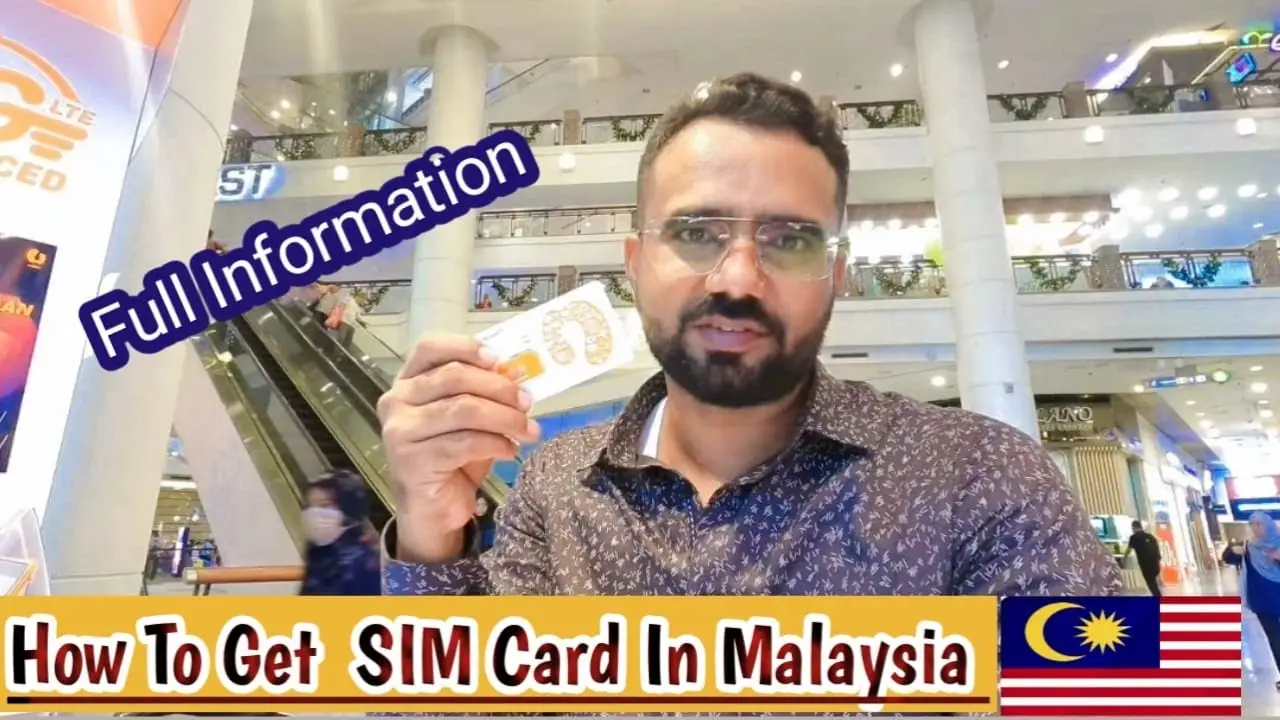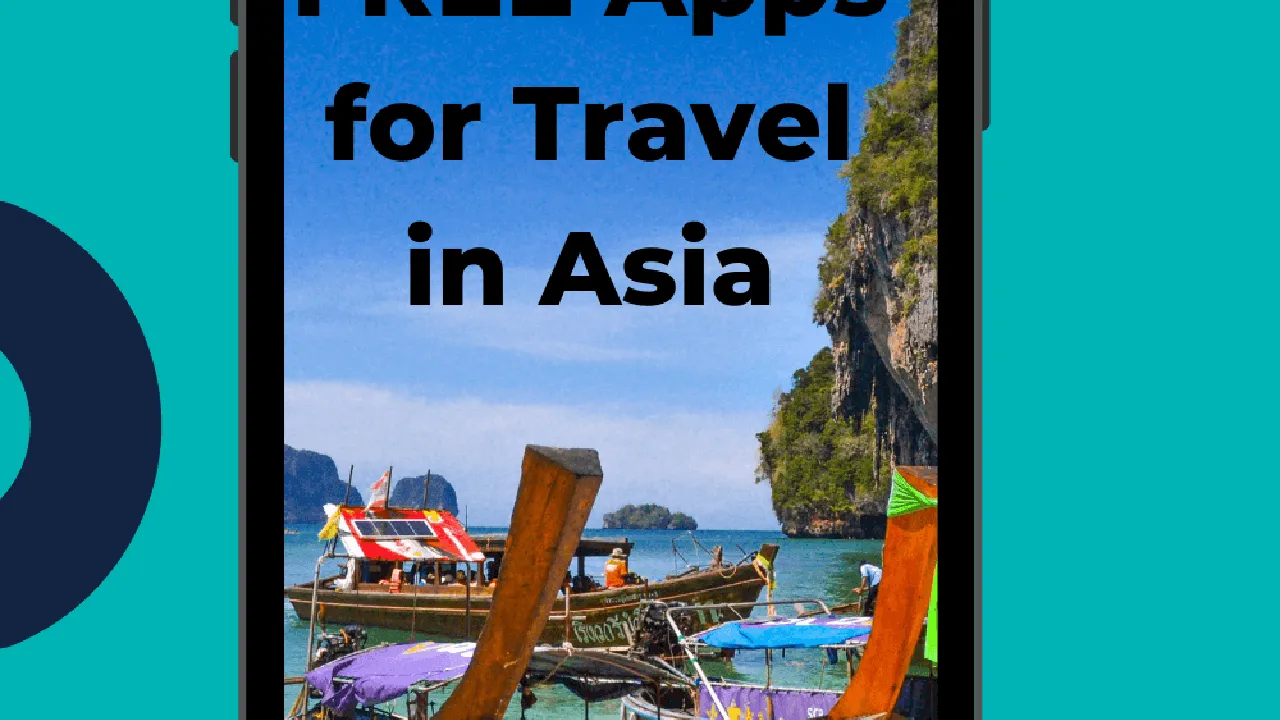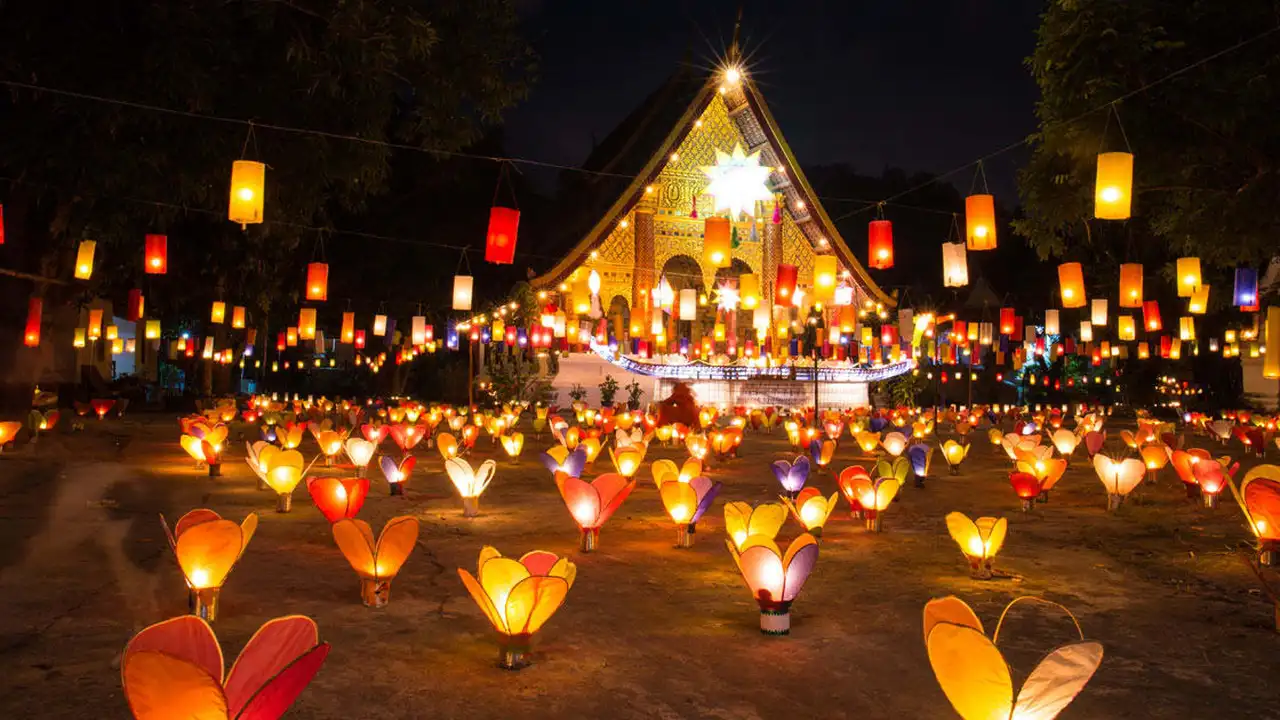Southeast Asia: How to Get a SIM Card

Understanding Your SIM Card Options in Southeast Asia Mobile Data and Connectivity
Alright, so you're jetting off to Southeast Asia! Awesome choice. Beaches, temples, amazing food... what's not to love? But before you start posting those envy-inducing Instagram stories, let's talk about staying connected. Roaming charges? Forget about it! Getting a local SIM card is the way to go. It's cheaper, faster, and way more convenient. This guide will walk you through everything you need to know about getting a SIM card in Southeast Asia, from the different types available to specific recommendations and tips for each country.
Prepaid vs Postpaid SIM Cards Choosing the Right Plan for Your Trip
First things first, you've got two main options: prepaid and postpaid. Think of prepaid as "pay-as-you-go." You buy a SIM card, load it up with credit, and use it until it runs out. Perfect for tourists and short-term visitors. Postpaid, on the other hand, is a monthly subscription. You get a set amount of data, calls, and texts each month and pay a recurring fee. This is generally better suited for long-term stays or if you're planning on making a lot of calls.
For most travelers, prepaid is the winner. It's easier to set up, requires less paperwork (usually just your passport), and you don't have to worry about getting stuck in a contract. Plus, you can easily top up your credit at convenience stores, supermarkets, and even online.
Where to Buy Your SIM Card Airport vs City Center Options
Now, where to buy your SIM card? You've got a couple of choices. The most convenient option is to buy one at the airport upon arrival. You'll usually find several booths from different mobile operators right in the arrival hall. This is great because you can get connected right away and start navigating your way to your hotel. However, airport SIM cards can sometimes be a bit more expensive than those you find in the city center.
If you're willing to wait a bit, you can often find better deals in the city. Mobile operator stores are usually located in shopping malls and busy streets. You can also find SIM cards at convenience stores like 7-Eleven and Family Mart. These are generally cheaper than airport options, but you'll need to spend some time finding them.
Choosing the Right Mobile Operator Comparing Network Coverage and Data Packages
Okay, so you know where to buy your SIM card. Now it's time to choose a mobile operator. Each country in Southeast Asia has its own set of operators, and they all offer different data packages, coverage, and speeds. Here's a quick rundown of some of the major players:
- Thailand: AIS, DTAC, TrueMove H
- Vietnam: Viettel, MobiFone, Vinaphone
- Indonesia: Telkomsel, Indosat Ooredoo, XL Axiata
- Malaysia: Maxis, Celcom, Digi
- Singapore: Singtel, StarHub, M1
- Philippines: Globe, Smart
Before you choose an operator, do a little research on their network coverage in the areas you'll be visiting. Some operators have better coverage in rural areas, while others are stronger in cities. You can usually find coverage maps on their websites. Also, compare their data packages and prices. Consider how much data you think you'll need and choose a package that fits your budget.
Recommended SIM Cards and Data Packages for Southeast Asia Travelers
Let's get down to specifics. Here are a few recommended SIM cards and data packages for travelers in Southeast Asia:
Thailand Best SIM Cards for Tourists
AIS: AIS is generally considered to have the best overall coverage in Thailand. They offer a variety of tourist SIM cards with different data allowances and validity periods. For example, their "Traveler SIM" offers unlimited data for 8 days for around 299 THB. This is a great option if you're planning on using a lot of data for streaming videos or making video calls.
DTAC: DTAC is another popular choice, offering competitive prices and good coverage. Their "Happy Tourist SIM" provides a good balance of data, calls, and SMS. They often have promotions and discounts, so be sure to check their website before you buy.
TrueMove H: TrueMove H is known for its fast 4G speeds. They offer a variety of tourist SIM cards with different data allowances. Their "Tourist SIM" is a good option if you need a lot of data and want the fastest possible speeds.
Vietnam Top SIM Card Choices
Viettel: Viettel is the largest mobile operator in Vietnam and has the best coverage, especially in rural areas. They offer a variety of prepaid SIM cards with different data allowances. A popular option is their 7-day unlimited data package for around 100,000 VND.
MobiFone: MobiFone is another good option, with decent coverage and competitive prices. They offer a variety of prepaid SIM cards with different data allowances. Their "Data SIM" is a good option if you only need data and don't plan on making many calls.
Vinaphone: Vinaphone is the third largest mobile operator in Vietnam. They offer a variety of prepaid SIM cards with different data allowances. Their "Tourist SIM" is a good option for short-term visitors.
Indonesia SIM Card Recommendations
Telkomsel: Telkomsel is the largest mobile operator in Indonesia and has the best coverage, especially outside of major cities. They offer a variety of prepaid SIM cards with different data allowances. Their "Simpati" SIM card is a popular choice.
Indosat Ooredoo: Indosat Ooredoo is another good option, with decent coverage and competitive prices. They offer a variety of prepaid SIM cards with different data allowances. Their "IM3 Ooredoo" SIM card is a popular choice.
XL Axiata: XL Axiata is the third largest mobile operator in Indonesia. They offer a variety of prepaid SIM cards with different data allowances. Their "XL" SIM card is a popular choice.
Malaysia Best Options for Tourists
Maxis: Maxis is one of the leading mobile operators in Malaysia, known for its strong network and wide coverage. Their prepaid plans offer competitive data packages, making them a reliable choice for travelers.
Celcom: Celcom is another popular option in Malaysia, providing a good balance of coverage and affordability. Their prepaid plans are designed to cater to different usage needs, ensuring you can find a package that suits your travel style.
Digi: Digi is recognized for its innovative approach and customer-centric services. Their prepaid plans offer attractive data allowances and value-added services, making them a compelling choice for tech-savvy travelers.
Singapore SIM Card Options
Singtel: Singtel is the dominant player in Singapore, offering excellent coverage and a wide range of services. Their prepaid plans provide generous data allowances and competitive call rates, ensuring you stay connected effortlessly.
StarHub: StarHub is another reputable operator in Singapore, known for its reliable network and customer-focused approach. Their prepaid plans cater to different usage patterns, allowing you to choose a package that aligns with your travel needs.
M1: M1 offers competitive prepaid plans with attractive data allowances and bundled services. Their focus on innovation and customer satisfaction makes them a popular choice among locals and tourists alike.
Philippines SIM Card Choices
Globe: Globe is a major mobile operator in the Philippines, providing extensive coverage and a wide range of services. Their prepaid plans offer competitive data packages and flexible options, catering to different usage needs.
Smart: Smart is another leading operator in the Philippines, known for its innovative services and customer-centric approach. Their prepaid plans provide attractive data allowances and value-added services, making them a compelling choice for travelers.
Activating Your SIM Card A Step-by-Step Guide
Once you've bought your SIM card, you'll need to activate it. The activation process varies depending on the operator and the country. In most cases, you'll need to insert the SIM card into your phone, turn it on, and follow the instructions on the screen. You may need to register your SIM card with your passport details. This is a legal requirement in some countries.
If you're having trouble activating your SIM card, you can usually get help from the mobile operator's customer service. They can guide you through the activation process and answer any questions you may have.
Topping Up Your SIM Card Adding Credit and Data
Once your SIM card is activated, you'll need to top it up with credit or data. You can usually do this at convenience stores, supermarkets, and even online. Look for the mobile operator's logo and ask for a top-up voucher. You'll then need to enter the voucher code into your phone to add the credit or data to your account.
Many operators also offer online top-up options. You can usually pay with a credit card or PayPal. This is a convenient option if you don't want to go to a store.
Specific Product Recommendations and Comparisons
Let's dive into some specific product recommendations and comparisons to help you make the best choice:
Thailand: AIS Traveler SIM vs DTAC Happy Tourist SIM
AIS Traveler SIM (299 THB for 8 days unlimited data):
- Pros: Truly unlimited data (no throttling), excellent coverage, easy to find top-up locations.
- Cons: Can be slightly more expensive than other options, might not be necessary if you don't use a ton of data.
- Use Case: Ideal for heavy data users who stream videos, use maps extensively, or need a reliable connection for work.
DTAC Happy Tourist SIM (Varies, often around 299 THB for 8 days with limited data):
- Pros: Good value for money, often includes free calls, decent coverage.
- Cons: Data might be limited, can be slower than AIS in some areas.
- Use Case: Suitable for average data users who need a balance of data, calls, and affordability.
Vietnam: Viettel vs MobiFone Data SIMs
Viettel 7-day Unlimited Data (around 100,000 VND):
- Pros: Best coverage in Vietnam, truly unlimited data, reliable connection.
- Cons: Can be slightly more expensive than other options, might not be necessary if you're only staying in cities.
- Use Case: Best for travelers venturing outside major cities or needing a consistently strong connection.
MobiFone Data SIM (Varies, often around 70,000 VND for limited data):
- Pros: More affordable than Viettel, good coverage in cities, decent speed.
- Cons: Limited data allowance, can be slower than Viettel in rural areas.
- Use Case: A good budget-friendly option for travelers staying primarily in urban areas.
Indonesia: Telkomsel Simpati vs Indosat Ooredoo IM3 Ooredoo
Telkomsel Simpati (Varies, depends on the data package):
- Pros: Widest coverage across Indonesia, reliable even in remote areas.
- Cons: Can be pricier than other options, activation process might be slightly more complex.
- Use Case: Crucial for travelers exploring diverse Indonesian islands or working remotely from anywhere.
Indosat Ooredoo IM3 Ooredoo (Varies, often more affordable):
- Pros: More budget-friendly, good speeds in urban centers.
- Cons: Coverage less extensive compared to Telkomsel, especially in rural regions.
- Use Case: Ideal for city-based travelers or those needing to save money.
Tips for Using Your SIM Card in Southeast Asia Data Saving and Security
Here are a few tips to help you make the most of your SIM card in Southeast Asia:
- Turn off data roaming: This will prevent you from accidentally incurring roaming charges.
- Use Wi-Fi whenever possible: This will help you save data.
- Download offline maps: This will allow you to navigate without using data.
- Be careful with public Wi-Fi: Public Wi-Fi networks are often not secure. Avoid entering sensitive information on public Wi-Fi networks.
- Use a VPN: A VPN will encrypt your internet traffic and protect your privacy.
Understanding SIM Card Expiry Dates and Validity
Pay close attention to the expiry date and validity of your SIM card and data packages. Many prepaid SIM cards have a limited validity period, typically ranging from a few days to a few weeks. Once the validity period expires, your SIM card may be deactivated, and you'll lose any remaining credit or data.
Make sure to top up your SIM card before the expiry date to keep it active. You can usually check the expiry date by dialing a specific code or using the mobile operator's app.
Troubleshooting Common SIM Card Issues
Sometimes, you might encounter issues with your SIM card, such as:
- No signal: Check that your SIM card is properly inserted and that your phone is not in airplane mode.
- Unable to make calls: Make sure you have enough credit on your SIM card.
- Slow data speeds: Try restarting your phone or moving to a different location.
If you're still having trouble, contact the mobile operator's customer service for assistance.
Mobile Hotspots and Tethering Using Your Phone as a Router
Many smartphones allow you to create a mobile hotspot, sharing your phone's internet connection with other devices like laptops or tablets. This can be a convenient way to stay connected on multiple devices without needing to buy multiple SIM cards. However, be mindful that using your phone as a hotspot can drain your battery quickly and consume a lot of data.
Check your mobile operator's terms and conditions to see if they allow tethering or mobile hotspot usage. Some operators may charge extra for this feature or have data limits.
E-SIMs The Future of Connectivity in Southeast Asia
E-SIMs (embedded SIMs) are becoming increasingly popular. These are digital SIM cards that are built into your phone. You can activate an eSIM by scanning a QR code or downloading a profile. This eliminates the need to physically insert a SIM card. While not all operators in Southeast Asia currently support eSIMs, the trend is growing, and it's worth checking if your phone and preferred operator offer this option.
Selling and Buying Used SIM Cards Legally and Safely
It's generally not recommended to buy or sell used SIM cards, as they may be linked to previous owners and could pose security risks. In some countries, it's illegal to use a SIM card that's not registered in your name. It's always best to buy a new SIM card from a reputable source and register it with your own details.
Staying Connected in Southeast Asia: A Summary
Getting a local SIM card is essential for staying connected in Southeast Asia. It's cheaper and more convenient than roaming. By following these tips, you can easily find the right SIM card for your needs and enjoy seamless connectivity throughout your trip. From the bustling streets of Bangkok to the serene beaches of Bali, a local SIM card will help you stay connected, informed, and ready to explore.
:max_bytes(150000):strip_icc()/277019-baked-pork-chops-with-cream-of-mushroom-soup-DDMFS-beauty-4x3-BG-7505-5762b731cf30447d9cbbbbbf387beafa.jpg)






